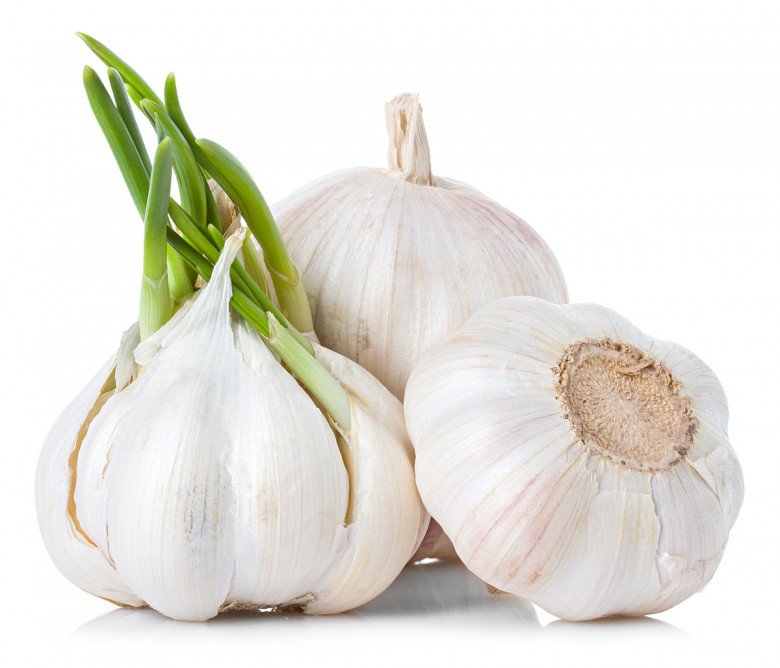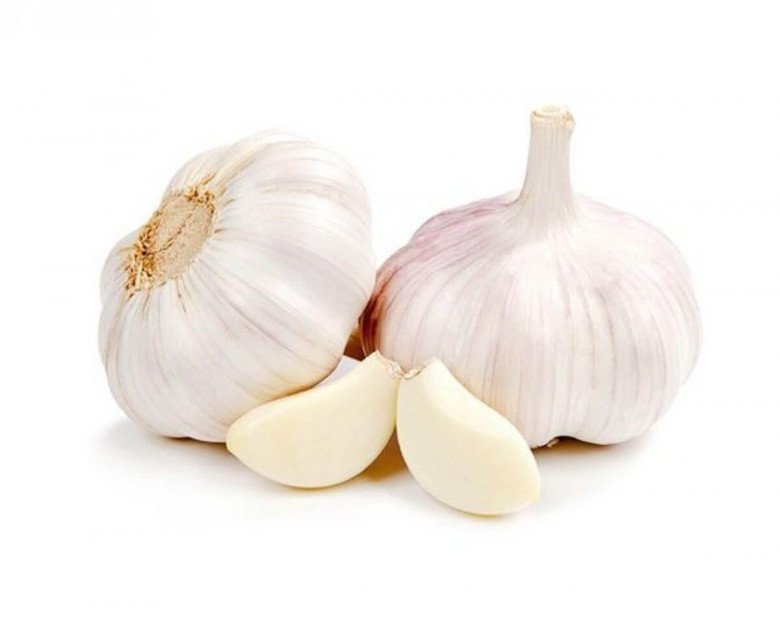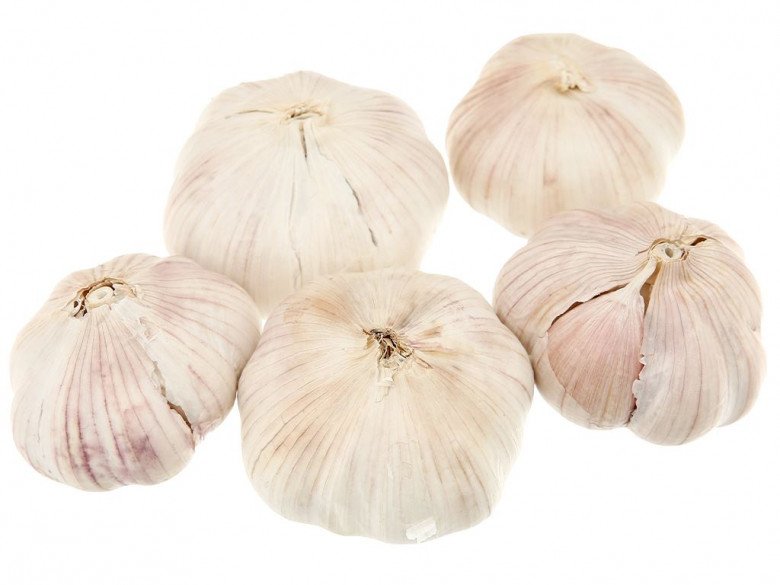Sprouted Garlic
Unlike some types of toxic sprouted seeds, sprouted garlic is not harmful to health. In fact, garlic sprouts are very good for you, but it’s best not to buy garlic bulbs that have already sprouted.
Sprouted garlic bulbs have significantly reduced nutritional value as they have to nourish the sprout. Additionally, sprouted garlic cloves are less fragrant, larger, softer, and less crisp. Eating these cloves results in a less flavorful, spongy, and generally less enjoyable experience compared to fresh, crisp garlic bulbs.

Overly White Garlic
While pure white garlic cloves may be visually appealing, it is best not to purchase them. The nutritional value of these white cloves is typically lower, so it is recommended to opt for garlic with a purple skin. Purple-skinned garlic has stronger antiseptic properties, and its flavor is more intense. It not only tastes better but is also more nutritious.

Garlic with “Open Mouths”
Many people prefer to choose garlic cloves with “open mouths,” meaning the individual cloves have cracked and the outer skin has come loose. While these cloves are easier to peel, they are more challenging to store. Garlic bulbs with tight skins that are not easily oxidized when exposed to air can be stored for longer periods.
On the other hand, “open-mouthed” garlic is more susceptible to mold and spoilage, so if you buy this type, it’s best to consume it as soon as possible. Therefore, if you’re only buying a small amount to be used within a few days, this type of garlic is suitable. However, if you’re purchasing a larger quantity, it’s best to opt for bulbs with intact skins.

Soft Garlic
In addition to observing the appearance of the garlic bulb, it is advisable to squeeze it to check for firmness. The ideal garlic clove should feel hard and solid; if it feels soft or squishy, it has likely deteriorated and may be dry, rotten, or spoiled in some way.
|
Garlic Storage Tips: 1. Using Ginger Take a piece of ginger, cut it into slices, wrap it in gauze, and place it in a garlic bag. Keep it in a cool, ventilated area. Ginger has a spicy and pungent flavor, and it can kill and inhibit bacteria. It also absorbs moisture and keeps garlic dry, preventing sprouting and dehydration for up to a year. Remember to check the ginger occasionally, and replace it with fresh slices if it dries out. 2. Using Roasted Salt Prepare about 60 grams of salt and heat it in a pan until it turns yellow and dry. Wrap the salt in a clean piece of gauze. Place the garlic in a bag with the roasted salt packet. Squeeze out any excess air from the bag before sealing it shut. Store it in a cool, ventilated area. This method of preserving garlic with roasted salt helps absorb moisture and prevents bacterial growth, keeping the garlic from spoiling for up to one or two years. |






























